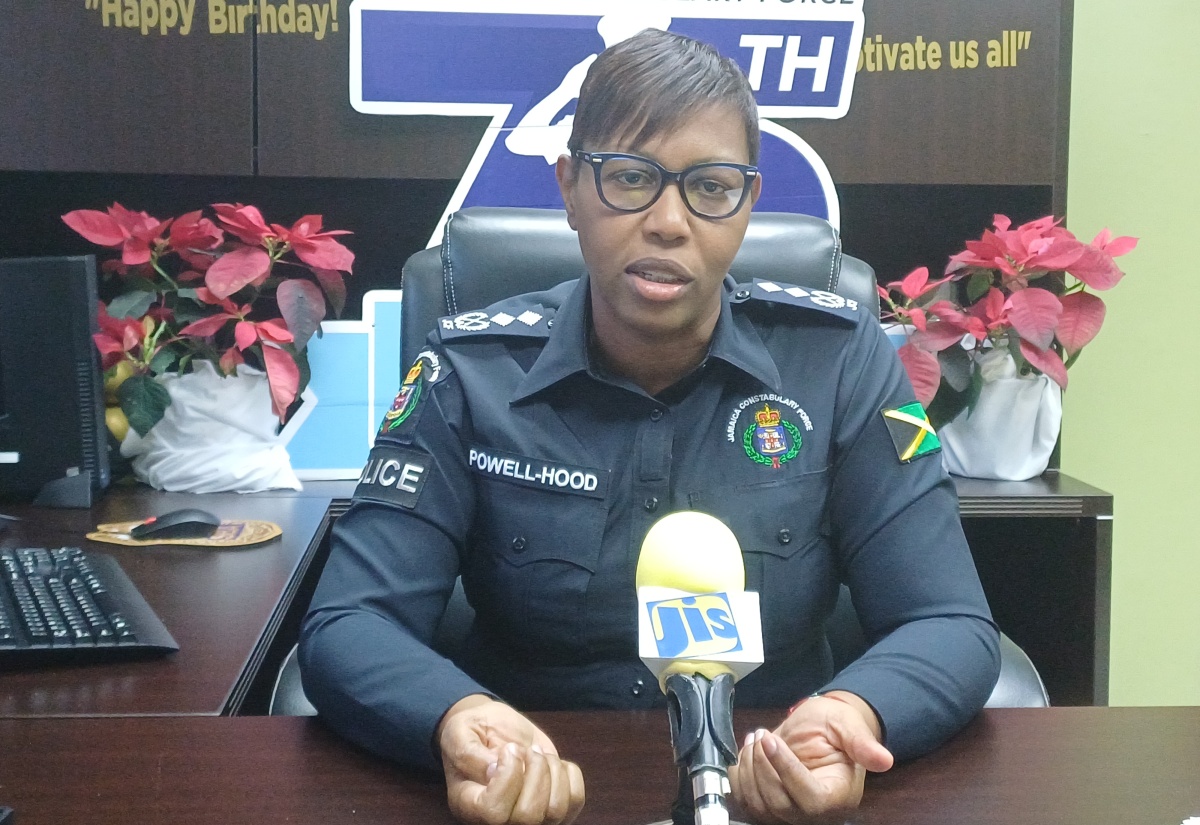Highest-Ranked Female Officer Wants More Women to Join the JCF
By: , April 25, 2025The Full Story
Deputy Commissioner of Police (DCP) Karina Powell-Hood, who is the highest-ranked female officer in the Jamaica Constabulary Force (JCF), wants more young women to view the police force as a viable career choice.
Speaking with JIS News, she notes that while the JCF is male-dominated, it provides the opportunity for women with the right aptitude and qualifications to have a rewarding career. She says that with hard work they can rise to the highest level of the organisation.
“There are equal opportunities, I would say, for women in the Force. We do the same examinations and we are considered equally, so there is nothing to fear in that regard. When you look, you will see more men, but that is just the nature of what it is,” she points out.
DCP Powell-Hood, who is the third female to become Deputy Commissioner, following Jevene Bent and Novelette Grant, who are now retired, says that over the course of its history, the JCF has seen significant strides in gender inclusivity, with women accounting for a growing percentage of the Force, including at the leadership level.
Three women were promoted to the rank of Assistant Commissioner in 2024.
They are Charmaine Shand, Community Safety and Security Branch; Jacqueline Green, Services Branch; and Jacqueline Coombs, Inspectorate and Professional Standards Oversight Bureau.
DCP Powell-Hood says that the number of women in charge of police divisions has grown since she was enlisted in 2002.
“This was a good movement for the female members, and they acquitted themselves very well,” she tells JIS News.
DCP Powell-Hood, who has responsibility for the Force Development and Logistics Portfolio in the JCF, enlisted as an officer under the Graduate Entry Programme for Middle Management.
The programme targets persons with university degrees, preparing them for supervisory and leadership roles.
It aims to foster professionalism and equip officers with the necessary skills for navigating modern policing challenges.
DCP Powell-Hood holds a Bachelor of Arts (BA) degree in Spanish from the University of the West Indies (UWI) and taught the subject before joining the Force.
She holds professional certification in security and defence studies and strategic leadership and is reading for a Master of Business Administration (MBA) with a Concentration in Security Management Studies.
She tells JIS News that the JCF provides opportunities for persons with various qualifications and skill sets.
“There are several career paths that people can take. You find that a number of persons who have legal background, if they work within divisions, they help in preparing case files, and your skill set is used there. We have our property management and maintenance division, mechanics, transport, management and maintenance division. So, there are a lot of places within the Force that you can eke out a career path,” she points out.
To join the JCF, applications must be between 18 and 30 years of age, with men required to be a minimum of five feet, seven inches and 135 pounds, with women a minimum of five feet, five inches and 125 pounds.
They must produce documentary proof of qualifications of a least four subjects in the Caribbean Secondary Education Certificate (CSEC), or other qualification approved by the Caribbean Examinations Council (CXC) or the University Council of Jamaica (UCJ).
Passes must include Mathematics (or a maths-based subject – Accounts, Physics or Chemistry) and English Language (mandatory).
Applicants who present tertiary-level certification, including first and or second degrees, are required to sit the entry-level examination.
Where they possess other qualification, such as a certificate or diploma, in addition to less than the four subjects required, the recruiting officer may conduct a brief interview, and the candidate may be granted permission to sit the exam.
“If you want to join, first you have to make sure that you really want to be a police officer,” DCP Powell-Hood advises.
“I have had conversations with some people wanting to come in but they don’t want to do the streets; they don’t want to do the beat work. If that is what you are thinking about, maybe you can look in the technical post, but if you are joining entry level, it is part of what is required. You are a law-enforcement officer first and foremost,” she points out.
The DCP, who provided inspired leadership for the successful implementation of ISO-Quality Management processes in the JCF, is committed to excellence in all that she does, to leveraging her influence to make changes for the good of the people under her command.
She notes that the position of Staff Officer is challenging, requiring objectivity, responsiveness and garnering the trust and confidence of the senior and junior officers.
DCP Powell-Hood tells JIS News that she is proud of her more than two decades of service to the JCF, and to play a role in the transformation process, which is focused on enhancing professionalism, effectiveness and community engagement.
“I got a lot of exposure to the corporate side of policing, and I am very grateful for that experience, which has given me a greater understanding of what is required to manage the organisation, ” she says.
“I want to be one of the persons who significantly contribute to the positive changes in the organisation,” she adds.
Recently, the JCF celebrated 75 years of women in the Force, highlighting the progress made by female members.
Through events like the Commissioner’s Award of Excellence, the female officers were recognised for going beyond the call of duty and making a positive impact on their communities.
The organisation has made strides in gender inclusivity by abolishing titles like “woman constable” to reflect a focus on professional competence.
The JCF was established in 1867.


